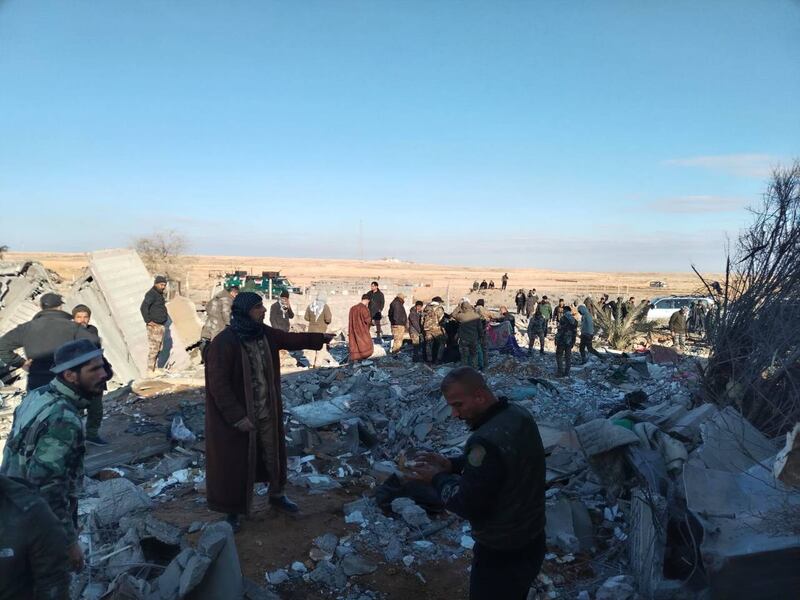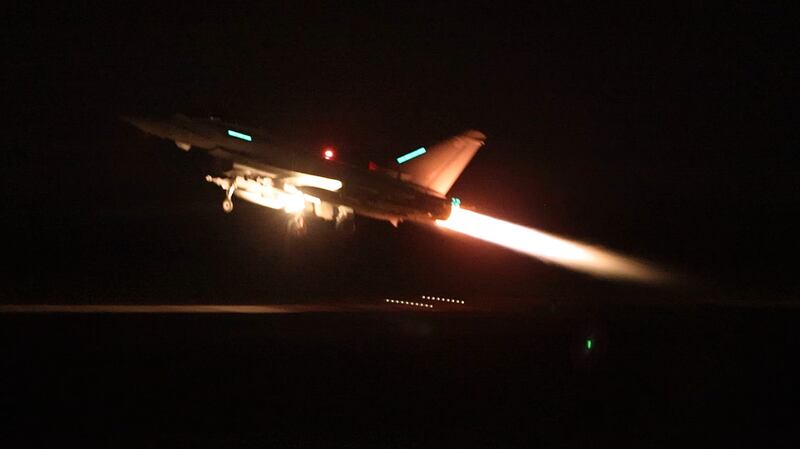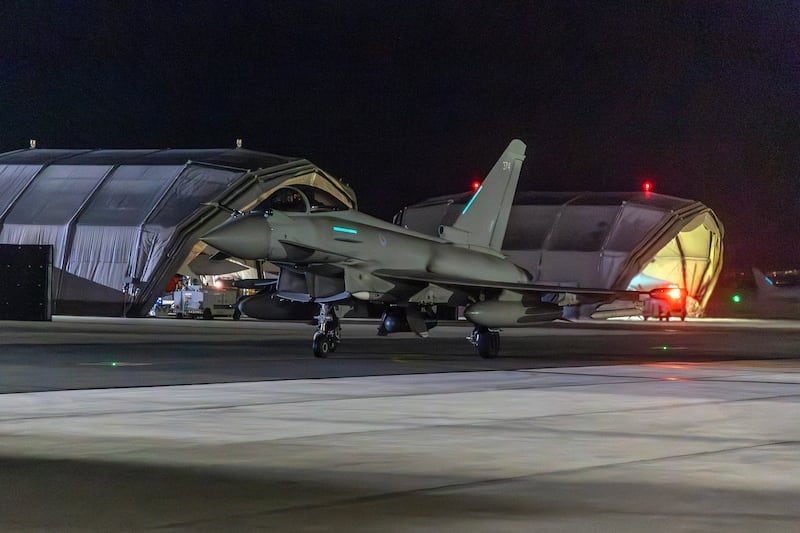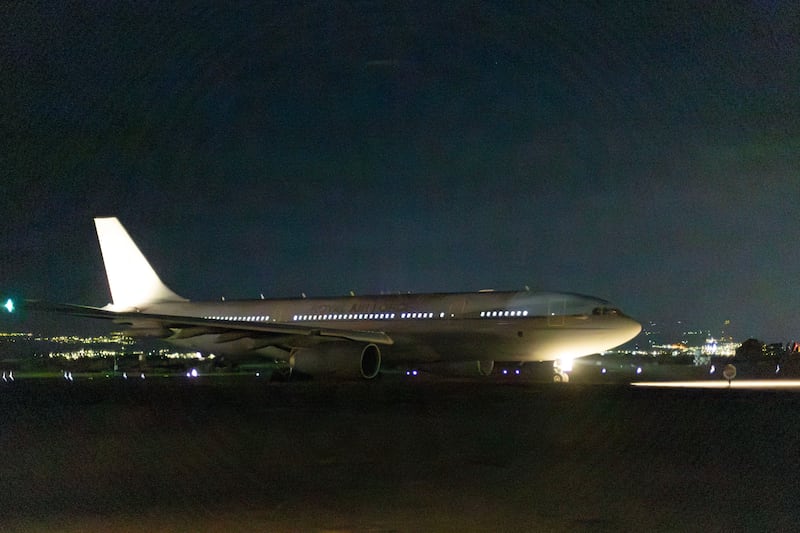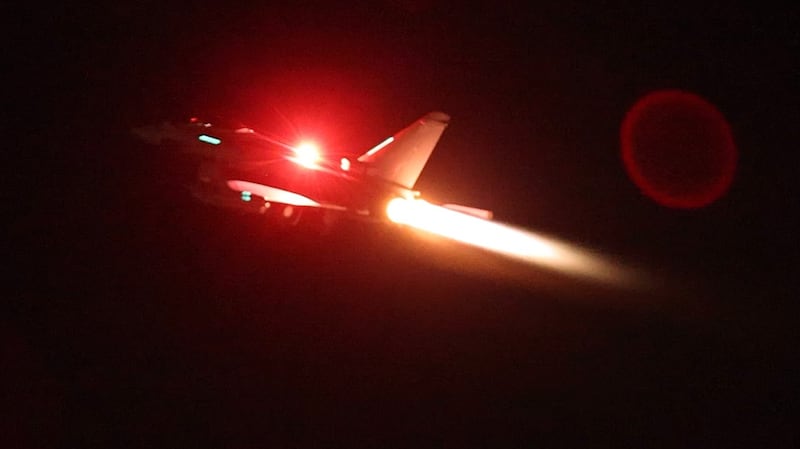Live updates: Follow the latest from Israel-Gaza
Iran said on Saturday that the US air strikes in Syria and Iraq in response to a deadly attack on its troops were “a strategic mistake” that would only result in an escalation of tensions and instability in the region.
The US military said it launched 85 strikes against Iran-allied targets at four locations in Syria and three locations in Iraq on Friday night, in what President Joe Biden said was the first wave of retaliation for a drone attack that killed three American troops in Jordan on January 28.
The Syrian military and Iraqi officials said the attacks killed security forces members as well as civilians.
Iranian Foreign Ministry spokesman Nasser Kaanani condemned the attacks as a violation of Syria and Iraq's sovereignty, international law and the UN Charter, the state Irna news agency reported.
“The continuation of such adventures is a threat to regional and international peace and security,” he said.
US launches retaliatory strikes on Iran-backed targets in Iraq and Syria
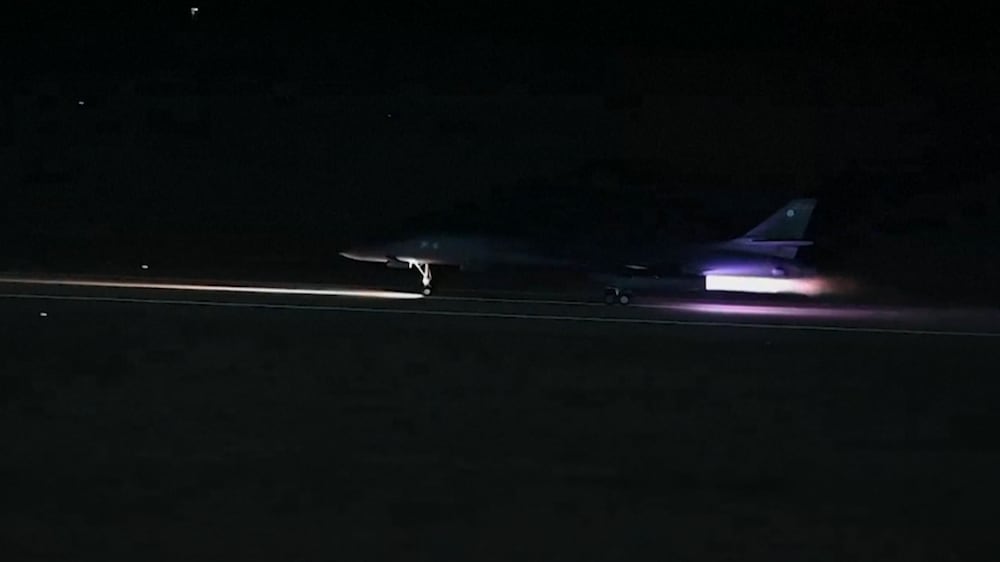
The US said the attack in Jordan was carried out by the Islamic Resistance in Iraq, a group of Iran-aligned militias that claims to have carried out a number of other attacks on American forces in Iraq and Syria in response to Washington’s support for Israel in the war in Gaza.
The strikes in Syria “mostly targeted alleged arms depots said to be used by armed groups in Syria and Iraq”, an informed source in Beirut briefed by Syrian officials on the strikes told The National.
“Those included locations in Deir Ezzor: near the airport, the Harabesh neighbourhood in the east, and Deir Ayash area in the West,” the source said.
The US also hit “at least three locations in Mayadeen city near the borders with Iraq”, according to the same source.
“The strikes were not a surprise. And the targets, the alleged arms depots, weren't a surprise too. It was all well calculated, so it won't lead to any further escalation with Iran.”
The Syrian army said the strikes killed many civilians and military members, without providing figures. They also caused “huge damage to private and public properties”, according to a statement carried by the state news agency Sana.
Sana said they caused power cuts in Deir Ezzor and in Mayadeen and Bukamal on the Syrian-Iraqi border.
The Syrian military said the attacks had “no justification” and called for the withdrawal of US troops based in northern Syria to help local forces fight the remnants of the extremist group ISIS.
A spokesman for Iraq's Prime Minister said the US strikes hit the Al Qaim and Akashat areas on the border with Syria, killing 16 people including civilians and injuring 25.
“Furthermore, the assault resulted in significant losses and damage to residential buildings and citizens' property,” spokesman Basim Alawadi said.
Mr Balawadi also rejected US claims that Baghdad had been notified of the strikes in advance, calling it “an unfounded claim crafted to mislead international public opinion and evade legal responsibility”.
The Iran-backed Houthi rebels in Yemen also claimed to have been targeted by US air strikes carried out together with Britain on Saturday.
“The US-British aggression today at dawn launched three raids on Saada governorate,” Saba, the Houthi-run news agency, reported.
It said three raids were carried out east of Saada city in the rebels' northern stronghold.
The US and UK have jointly carried out two rounds of air strikes since January 11 that they said were aimed at degrading the rebels' ability to continue carrying out drone and missile attacks against shipping in the Red Sea.
The rebels say their attacks, which have disrupted global shipping since they began in November, are directed at Israel-linked targets and are in support of Gaza.
Israel's devastating military offensive in Gaza, launched in retaliation for a deadly attack on October 7 by the militant group Hamas that rules the Palestinian territory, has triggered an increase in violence across the region.
The Iran-backed Lebanese group Hezbollah and allied Palestinian groups have traded near-daily exchanges of fire with the Israeli army, while US forces in Iraq and Syria have faced increased attacks by groups linked to Iran.
In a statement on Saturday, Hamas said the US “bears full responsibility for the repercussions” of its strikes in Iraq and Syria.
“Those who pour oil on the fire, we assure you that the region will not find stability, nor peace until the Zionist [Israeli] aggression, genocidal crimes and ethnic cleansing of the Palestinian people in the Gaza Strip ceases,” it said.
Israel has been accused of carrying out strikes that killed senior members of Iran's Islamic Revolutionary Guard Corps and allied groups in the Syrian capital Damascus, as well as a strike in the Lebanese capital Beirut that killed the deputy leader of Hamas's political wing.
Iran's Tasnim news agency reported that an adviser from the IRGC was killed in an air strike in Damascus early on Friday.
